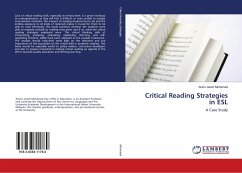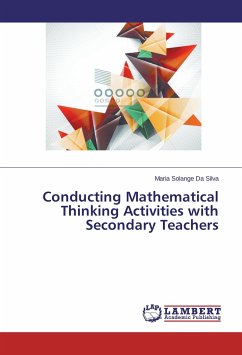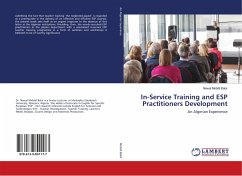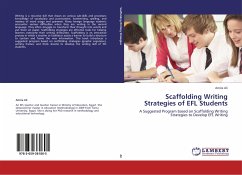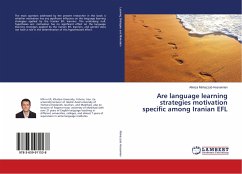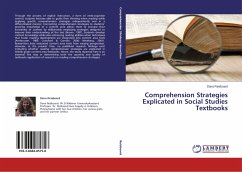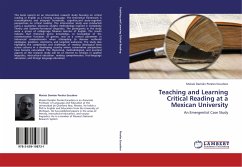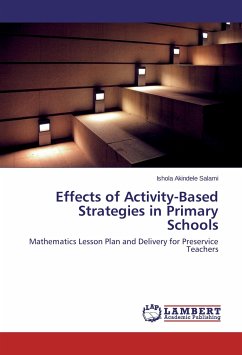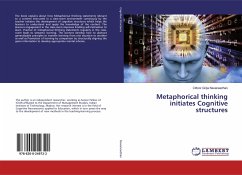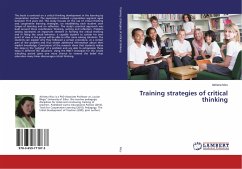
Training strategies of critical thinking
Versandkostenfrei!
Versandfertig in 6-10 Tagen
55,99 €
inkl. MwSt.

PAYBACK Punkte
28 °P sammeln!
This book is centered on a critical thinking development in the learning by cooperation context. The experiment involved a population segment aged between 9-13 years old. This study focuses on the use of critical thinking and cooperative learning strategies, on establishing each student own tempo of learning and on reflection. The study's practical approach was built around three coordinates: thinking, writing and reflection. Problem solving represents an important element in forming the critical thinking and in fixing the social behavior; a capable student to sustain his own point of view in ...
This book is centered on a critical thinking development in the learning by cooperation context. The experiment involved a population segment aged between 9-13 years old. This study focuses on the use of critical thinking and cooperative learning strategies, on establishing each student own tempo of learning and on reflection. The study's practical approach was built around three coordinates: thinking, writing and reflection. Problem solving represents an important element in forming the critical thinking and in fixing the social behavior; a capable student to sustain his own point of view in the group will be able to offer more solving solutions. The students can explain why they followed a certain procedure, at a certain part of the problem and thus obtain additional information about their implicit knowledge. Conclusions of the research show that students realize the steps in the "judging" of a problem and are able to extrapolate these steps in different life situations. Usingthe RWCT strategies for the whole schooling period gives one more chance to remove the belief that education many times discourages critical thinking.



